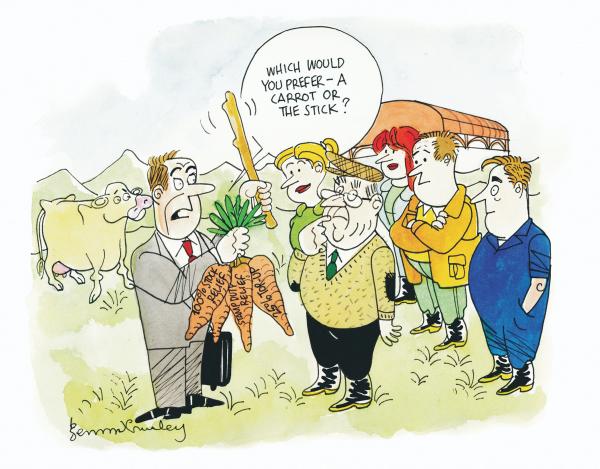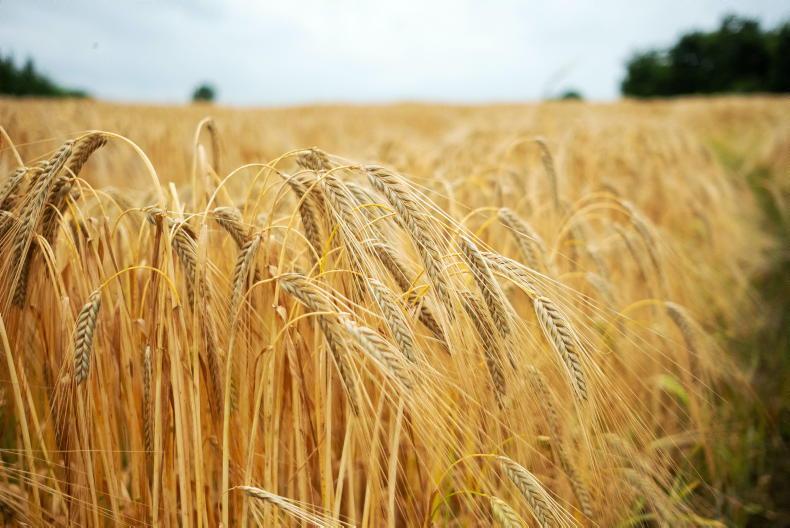Last year, the Irish Farmers Journal ran a six-month series entitled ‘Shared Passion Better Future’, which focused on better land use so that all farmers, young and old, could benefit. The farm tax review taking place this year provides the chance to solve problems identified in the series.
One of the key issues was land leasing. For some, access to leased land on a long-term basis was the foundation on which they have built a profitable business.
Many other farmers who contacted us during the series were deeply frustrated that they could only access land on a con-acre (annual) basis. There is little incentive to make long-term investments in land, such as reseeding and improving soil fertility, when you might not be farming it next year.
The level of uptake of long-term leasing tax concessions has been poor – perhaps partly down to CAP uncertainties that are now nearly cleared. There is no doubt we need to make more of long-term leasing tax incentives. Yes, the amount eligible for tax relief and the length of leases can be improved but we should also look to make it available to land owners of all ages.
Age limit
Currently, as a land owner, you must be 40 years of age to be eligible.
If a young person without any skill or interest in farming inherits land, surely it’s better he/she leases it in the long term to someone who will farm it to its potential, rather than farm it idly themselves.
Parents leasing land to their children don’t qualify for the income tax leasing exemption.
Some are worried that this would delay the transfer of farm ownership. Maybe if it was allowed under regulation – for a maximum of five years before a ‘child’ is 40, for example – it would encourage earlier transfer of farm control.
Tax concessions that encourage land owners to invest in fixed assets on the land they lease should be looked at. This could deliver a lot for productive farmers.
The Greenfield dairy farm in Kilkenny has shown that investing in fixed assets on leased land, while financially viable at a high level of performance and with a favourable milk price, does not give a fair return to the lessee. It puts all the risk on the active farmer.
The best encouragement to promote long-term leasing is to take the stick to con-acre. Tax concession carrots have only achieved so much to date, so maybe an alternative strategy is needed.
A theme running strongly throughout the ‘Shared Passion, Better Future’ series was the need for an obvious incentive for young ambitious farmers. Making better use of and increasing young farmer stock relief should be a major tax priority for the Government. The current situation of rolling over relief at budget time needs to be changed. Set the reliefs in stone for 10 years to allow young farmers thinking of entering the industry to plan.
Stock relief has a role but if it is the only incentive, it can lead farmers into making uneconomic decisions.
The people we need more of are essentially young farming entrepreneurs. Why shouldn’t they benefit from tax incentives the government has introduced for entrepreneurs outside of agriculture? Tax-free income for the first three years for a new start-up company or the ability to reclaim tax paid from previous employment if starting up on your own as a share farmer, for example? The benefits of improved productivity, increased exports and greater employment would hugely outweigh the cost to the exchequer of any of these increased incentives.
Improve access and attractiveness of long-term leases Take the stick to con-acre. Give incentives for land owners to invest in infrastructure. Focus on encouraging collaborative farming. Treat young farmers as entrepreneurs and open up tax incentives available in other sectors.
Last year, the Irish Farmers Journal ran a six-month series entitled ‘Shared Passion Better Future’, which focused on better land use so that all farmers, young and old, could benefit. The farm tax review taking place this year provides the chance to solve problems identified in the series.
One of the key issues was land leasing. For some, access to leased land on a long-term basis was the foundation on which they have built a profitable business.
Many other farmers who contacted us during the series were deeply frustrated that they could only access land on a con-acre (annual) basis. There is little incentive to make long-term investments in land, such as reseeding and improving soil fertility, when you might not be farming it next year.
The level of uptake of long-term leasing tax concessions has been poor – perhaps partly down to CAP uncertainties that are now nearly cleared. There is no doubt we need to make more of long-term leasing tax incentives. Yes, the amount eligible for tax relief and the length of leases can be improved but we should also look to make it available to land owners of all ages.
Age limit
Currently, as a land owner, you must be 40 years of age to be eligible.
If a young person without any skill or interest in farming inherits land, surely it’s better he/she leases it in the long term to someone who will farm it to its potential, rather than farm it idly themselves.
Parents leasing land to their children don’t qualify for the income tax leasing exemption.
Some are worried that this would delay the transfer of farm ownership. Maybe if it was allowed under regulation – for a maximum of five years before a ‘child’ is 40, for example – it would encourage earlier transfer of farm control.
Tax concessions that encourage land owners to invest in fixed assets on the land they lease should be looked at. This could deliver a lot for productive farmers.
The Greenfield dairy farm in Kilkenny has shown that investing in fixed assets on leased land, while financially viable at a high level of performance and with a favourable milk price, does not give a fair return to the lessee. It puts all the risk on the active farmer.
The best encouragement to promote long-term leasing is to take the stick to con-acre. Tax concession carrots have only achieved so much to date, so maybe an alternative strategy is needed.
A theme running strongly throughout the ‘Shared Passion, Better Future’ series was the need for an obvious incentive for young ambitious farmers. Making better use of and increasing young farmer stock relief should be a major tax priority for the Government. The current situation of rolling over relief at budget time needs to be changed. Set the reliefs in stone for 10 years to allow young farmers thinking of entering the industry to plan.
Stock relief has a role but if it is the only incentive, it can lead farmers into making uneconomic decisions.
The people we need more of are essentially young farming entrepreneurs. Why shouldn’t they benefit from tax incentives the government has introduced for entrepreneurs outside of agriculture? Tax-free income for the first three years for a new start-up company or the ability to reclaim tax paid from previous employment if starting up on your own as a share farmer, for example? The benefits of improved productivity, increased exports and greater employment would hugely outweigh the cost to the exchequer of any of these increased incentives.
Improve access and attractiveness of long-term leases Take the stick to con-acre. Give incentives for land owners to invest in infrastructure. Focus on encouraging collaborative farming. Treat young farmers as entrepreneurs and open up tax incentives available in other sectors. 









SHARING OPTIONS